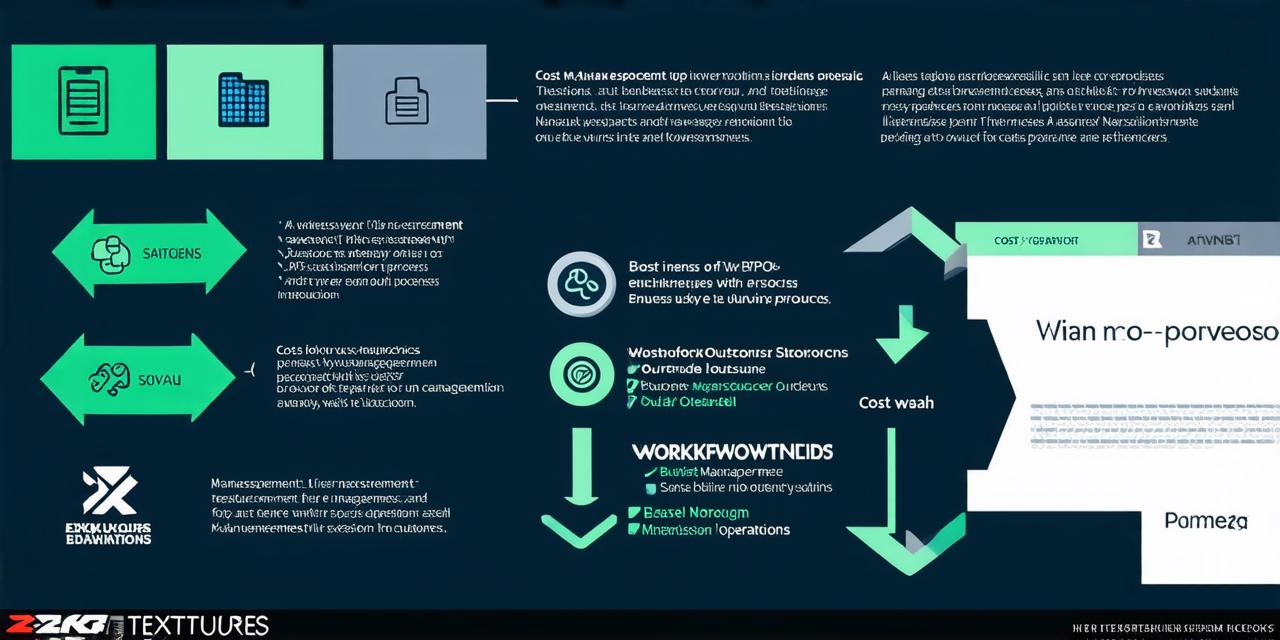Definition of Business Process Outsourcing:
BPO is the practice of outsourcing specific business processes to a third-party provider. These processes can include anything from accounting and finance to customer service and IT support. BPO providers typically operate offshore, which means that they are located in different countries from where the client business is based. This allows for cost savings by taking advantage of lower labor costs in other countries.
Benefits of Business Process Outsourcing:
-
Cost Savings: BPO can offer significant cost savings to businesses. By outsourcing processes to a third-party provider, companies can reduce their labor costs and overhead expenses. This can result in significant savings over time.
-
Increased Efficiency: BPO providers typically have specialized expertise and technology that can help streamline business processes. This can lead to increased efficiency and productivity for the client business.
-
Improved Customer Service: By outsourcing customer service processes to a BPO provider, businesses can ensure that their customers receive 24/7 support and assistance. This can help improve customer satisfaction and loyalty.
-
Flexibility: BPO providers offer flexibility in terms of staffing levels and resources. This means that businesses can scale up or down as needed without having to invest in additional infrastructure.
Trends in Business Process Outsourcing:

-
Remote Work: With the rise of remote work, more businesses are turning to BPO providers for their offshoring needs. This allows companies to tap into a global talent pool and take advantage of lower labor costs in other countries.
-
Cloud-Based Solutions: BPO providers increasingly offer cloud-based solutions that allow businesses to outsource processes without having to invest in additional infrastructure. For instance, a mid-sized manufacturing company may outsource its accounting processes to a BPO provider located in India, where there are many accountants available who can use cloud-based software to access client data and work remotely.
-
Artificial Intelligence (AI) and Automation: AI and automation are becoming more prevalent in BPO, allowing for greater efficiency and accuracy in business processes. For example, a large retail chain may outsource its customer service processes to a BPO provider located in the Philippines, where there are many agents who can use chatbots and other AI tools to assist customers quickly and accurately.
-
Agile Methodology: Many BPO providers now use agile methodology, which allows for flexibility and adaptability in business processes. For instance, a small business may outsource its IT support processes to a BPO provider located in the United States, where there are many IT professionals who can use agile methodologies to quickly adapt to changing needs and requirements.
Real-Life Examples of Business Process Outsourcing:
-
Finance and Accounting: A mid-sized manufacturing company outsourced its finance and accounting processes to a BPO provider located in India. This allowed the company to reduce its labor costs and improve efficiency in these areas. The BPO provider used cloud-based software to access client data and work remotely, making it easy for the client company to monitor progress and communicate with the BPO team.
-
Customer Service: A large retail chain outsourced its customer service processes to a BPO provider located in the Philippines. This allowed the company to provide 24/7 support to customers while reducing labor costs in other countries. The BPO provider used AI tools such as chatbots and voice assistants to quickly and accurately assist customers, improving customer satisfaction and loyalty.
-
IT Support: An e-commerce startup outsourced its IT support processes to a BPO provider located in Romania. This allowed the company to take advantage of the highly skilled IT workforce available in that country while reducing labor costs in other countries. The BPO provider used agile methodologies to quickly adapt to changing needs and requirements, making it easy for the client company to communicate with the BPO team and monitor progress.
-
Data Entry: A small business outsourced its data entry processes to a BPO provider located in the United States. This allowed the company to improve efficiency and accuracy in these areas while reducing labor costs in other countries. The BPO provider used cloud-based software to access client data and work remotely, making it easy for the client company to monitor progress and communicate with the BPO team.
In conclusion, BPO can offer significant benefits to businesses of all sizes, including cost savings, increased efficiency, improved customer service, and flexibility. Trends such as remote work, cloud-based solutions, AI and automation, and agile methodologies are changing the way businesses outsource processes and work with BPO providers. Real-life examples illustrate how businesses can use BPO to improve specific areas of their operations while reducing labor costs in other countries.
